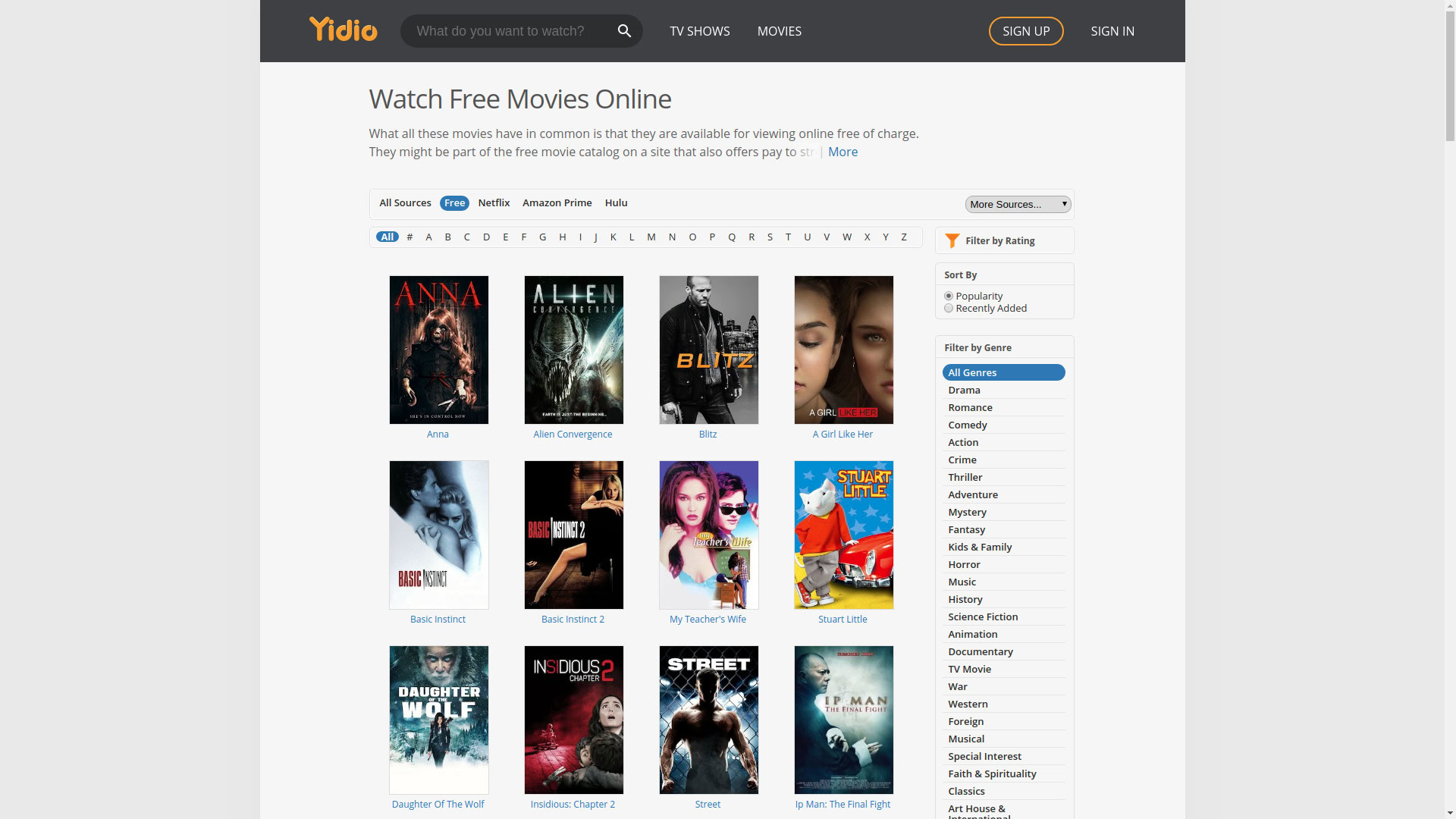Streaming Revolution: How Online Platforms are Redefining Entertainment
Streaming Revolution: How Online Platforms are Redefining Entertainment
Blog Article

In recent years, online streaming has transformed the way we consume entertainment, ushering in a new era that prioritizes convenience and personalization. Gone are the days when viewers were tied to a fixed schedule of television broadcasts, as the rise of platforms like Netflix, Hulu, and Amazon Prime has empowered audiences to watch their favorite shows and movies whenever and wherever they choose. This shift not only reflects a change in technology but also an evolution in our viewing habits, showcasing a fundamental redefinition of entertainment as we know it.
The streaming revolution has brought an abundance of content to our fingertips, enabling access to a vast library of films, series, and documentaries that were once difficult to find. With original programming and exclusive content being produced at an unprecedented rate, consumers are now presented with endless choices that cater to diverse tastes and preferences. This trend has encouraged a culture of binge-watching, allowing fans to immerse themselves in storylines and characters like never before. As online streaming continues to grow, it is clear that this dynamic landscape is reshaping not only how we watch but also how stories are created and shared worldwide.
The Shift to Streaming
The rise of online streaming has transformed the way audiences consume entertainment. Gone are the days when viewers were tied to a television schedule or dependent on physical media. The convenience of accessing content anytime and anywhere has led to a significant shift in how we engage with movies, television shows, and music. With just a few clicks, users can explore vast libraries of content across various genres, all at their fingertips.
As technology advances, streaming platforms have become increasingly sophisticated, offering personalized recommendations and interactive features to enhance user experience. High-quality streaming options, including 4K and surround sound, have also improved, attracting those who seek a cinematic experience at home. This evolution has prompted traditional media companies to adapt, invest, and collaborate with emerging players to stay relevant in a competitive environment.
The impact of online streaming is evident not only in viewership habits but also in content creation. As platforms like Netflix, Amazon Prime, and Disney Plus invest in original programming, the landscape of storytelling has evolved. Creators now have the opportunity to explore diverse narratives and produce content that resonates with varied audiences, allowing for more innovative and inclusive entertainment choices. This shift has redefined entertainment and showcased the power of digital platforms in shaping cultural discourse.
Impact on Traditional Media
The rise of online streaming platforms has significantly disrupted traditional media landscapes. Television networks and cable providers have faced unprecedented challenges as viewers increasingly turn to streaming services for their entertainment. This shift has led to declining viewership numbers for traditional broadcasts, forcing these companies to reevaluate their strategies and adapt to changing consumer preferences. The convenience and flexibility of on-demand content have made it hard for conventional media to keep pace, often resulting in reduced advertising revenues and audience engagement.
Furthermore, the content creation and distribution model has evolved dramatically. Traditional media previously relied on linear programming and fixed schedules to attract audiences, but streaming services have introduced binge-watching and algorithm-driven recommendations that cater to viewers' tastes. As a result, traditional networks are finding it necessary to develop their own streaming solutions or partner with existing platforms to remain relevant. This transformation has fostered a competitive environment where content quality and viewer experience are paramount.
The financial implications for traditional media are also significant. A substantial number of subscribers are abandoning cable packages in favor of streaming subscriptions, impacting revenue streams that once seemed stable. This economic pressure has led to cutbacks in production budgets and programming, sparking concerns about the future of live events, news coverage, and niche programming that is not as profitable. As online streaming continues to grow, traditional media will have to innovate and explore new models of engagement to survive in this rapidly changing landscape.
Future Trends in Online Entertainment
As technology continues to evolve, online streaming is set to undergo significant transformations in the coming years. One major trend is the rise of interactive content, which allows viewers to engage with programming in new ways. Platforms are likely to introduce features that enable audiences to make choices that affect the storyline, creating a personalized viewing experience. This shift toward interactivity is expected to resonate particularly with younger audiences who seek more immersive entertainment options.
Another trend is the increased focus on original content creation by streaming services. As competition in the online entertainment landscape intensifies, platforms will likely invest more heavily in producing exclusive films and series that cannot be found elsewhere. This not only helps to attract subscribers but also builds brand loyalty, as consumers become more inclined to invest in platforms that offer unique and high-quality content. Expect to see a diverse range of genres and stories that reflect global perspectives and realities.
Explore
Finally, the integration of artificial intelligence and data analytics will play a crucial role in shaping online streaming services. By harnessing viewer data, platforms will be able to tailor content recommendations more effectively, enhancing user satisfaction and retention. Moreover, AI technologies may assist in content creation, editing, and even marketing strategies, revolutionizing how entertainment is produced and consumed in the digital age. The future of online streaming promises a more personalized and engaging experience that caters to the evolving preferences of viewers worldwide.
Report this page